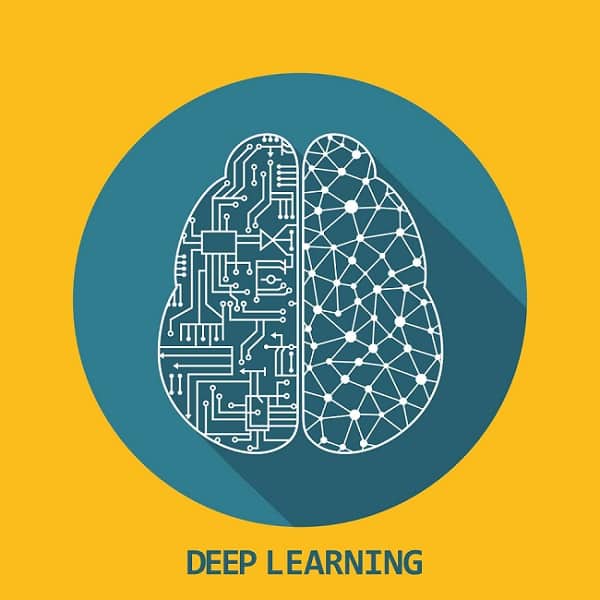
Last updated on : July 21st, 2020 by S Raange
“Artificial intelligence will reach human levels by around 2029. Follow that out further to, say, 2045, we will have multiplied the intelligence, the human biological machine intelligence of our civilization a billion-fold.”
– Ray Kurzweil, American inventor and futurist
Research has long been going on to mimic the working of the human brain and allow machines to ‘think’ on their own. Much progress has been made in this field and today you can witness the results in the form of applications based on Artificial Intelligence (AI) and machine learning. Self-driving cars, virtual assistants, getting accurate recommendations on Netflix, and personalized experience on Amazon, Flipkart, YouTube or other mobile applications are just the beginning of the successful implementation of AI.

If you are interested in a career in AI or machine learning, you must have heard about Deep Learning, a subset of machine learning. Deep learning is commonly used for the recognition of text, images, voice, or other unstructured data formats. Professionals working in Deep Learning often train a model that functions much like a human brain and use various libraries in the process. Some of the popular deep learning libraries are Keras, Theano, DL4J, TensorFlow, and Torch.
In this article, we shall focus on TensorFlow and understand why achieving TensorFlow Certification should be the next step of your career.
At first, when you listen to this term, you may not pay much attention to it. But knowing that this deep learning library is developed by the tech giant Google will surely pique your interest. Considered as an end-to-end open-source platform, TensorFlow allows developers to build and deploy machine learning-powered applications using its flexible ecosystem of tools, community resources, and libraries. The Google Brain Team originally designed this powerful library for large numerical computations but it then proved to be very useful for deep learning as well.
TensorFlow can run on different platforms like desktop (on Windows, Linux or macOS), cloud (as a web service), as well as mobile devices. It accepts data in the form of tensors, which are nothing but multi-dimensional arrays of higher dimensions. The library uses Python language to provide a front-end API to build applications and allows developers to express arbitrary computation as a data flow graph. There are nodes and edges in a data flow graph, where nodes represent the mathematical operations and edges represent the data communication from one to the other.
Various Google products like Google Search, Google Photos, and Google Translate utilize this powerful library. It also comparatively attracts the largest popularity on GitHub and has excellent community support. Some of the top companies that have successfully used TensorFlow in their deep learning initiatives include:
Here are the top reasons why TensorFlow is preferred by companies for building their machine learning and deep learning models:
There is a way professionals can demonstrate their expertise in using TensorFlow - the TensorFlow Developer Certification. Designed for students, developers, and data scientists, it is a foundational certificate that allows them to gain practical machine learning skills by developing and training models using TensorFlow.

You need to pass the TensorFlow Developer Certificate exam to achieve this certification. The exam will test your skills in the following areas:
It is an online performance-based exam conducted for up to 5 hours. You need not go to any test center to take the exam, you can use any computer with an internet connection that supports the PyCharm IDE requirements. For further details, you can check out the TensorFlow Developer Certificate Candidate Handbook.
By now you have got the introduction of TensorFlow and the details regarding the TensorFlow Developer Certification. Professionals interested in a career in deep learning or machine learning should know about TensorFlow. For this, they can take up TensorFlow training which lets them dive deep into the functionalities of the platform and gain the ability to handle projects backed by deep learning.
A good TensorFlow course will consist of topics like machine learning and deep learning principles; how to use Tensorflow to train machine learning models, build neural networks, build NLP systems, solve time series and forecast problems, and train and deploy models in the cloud, browser, or any other device. So, select a course from a reputed training provider and advance your career.
You may be interested in Article: Virtual Reality vs. Augmented Reality: What’s the Difference?
Awesome article. Tensorflow is fantastic framework and paltform for Machine learning and AI.
Nice article good for learning.